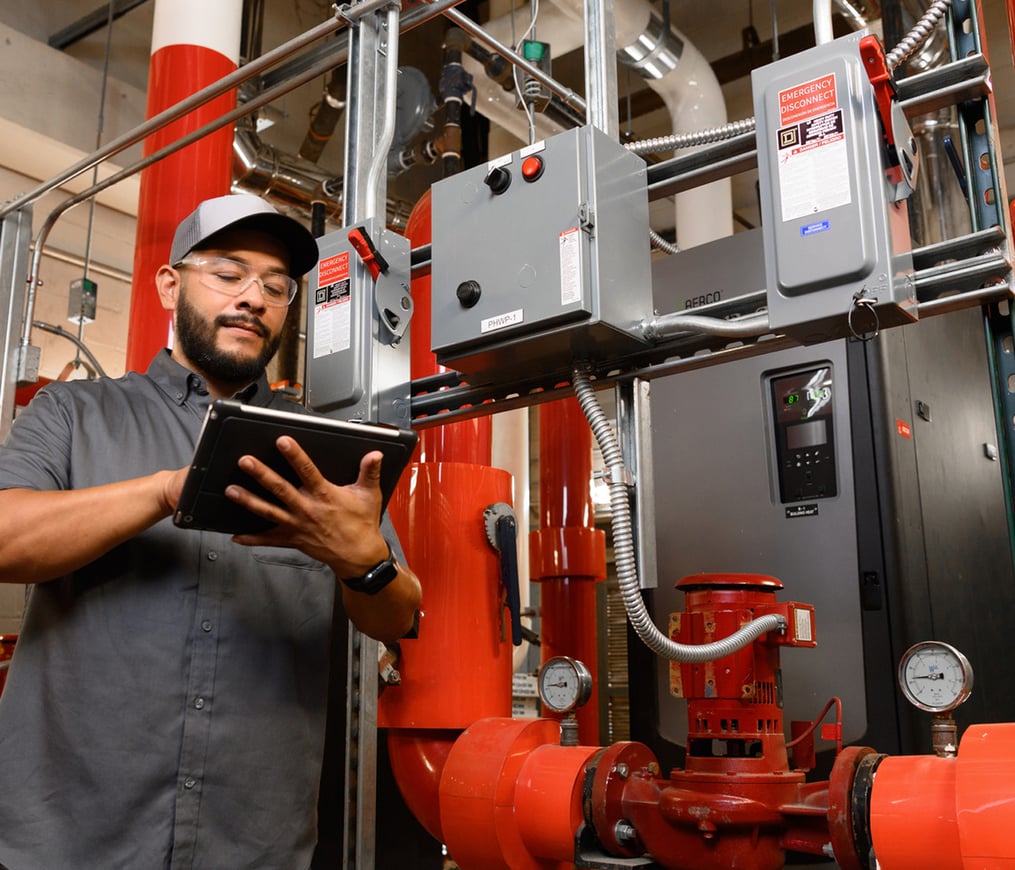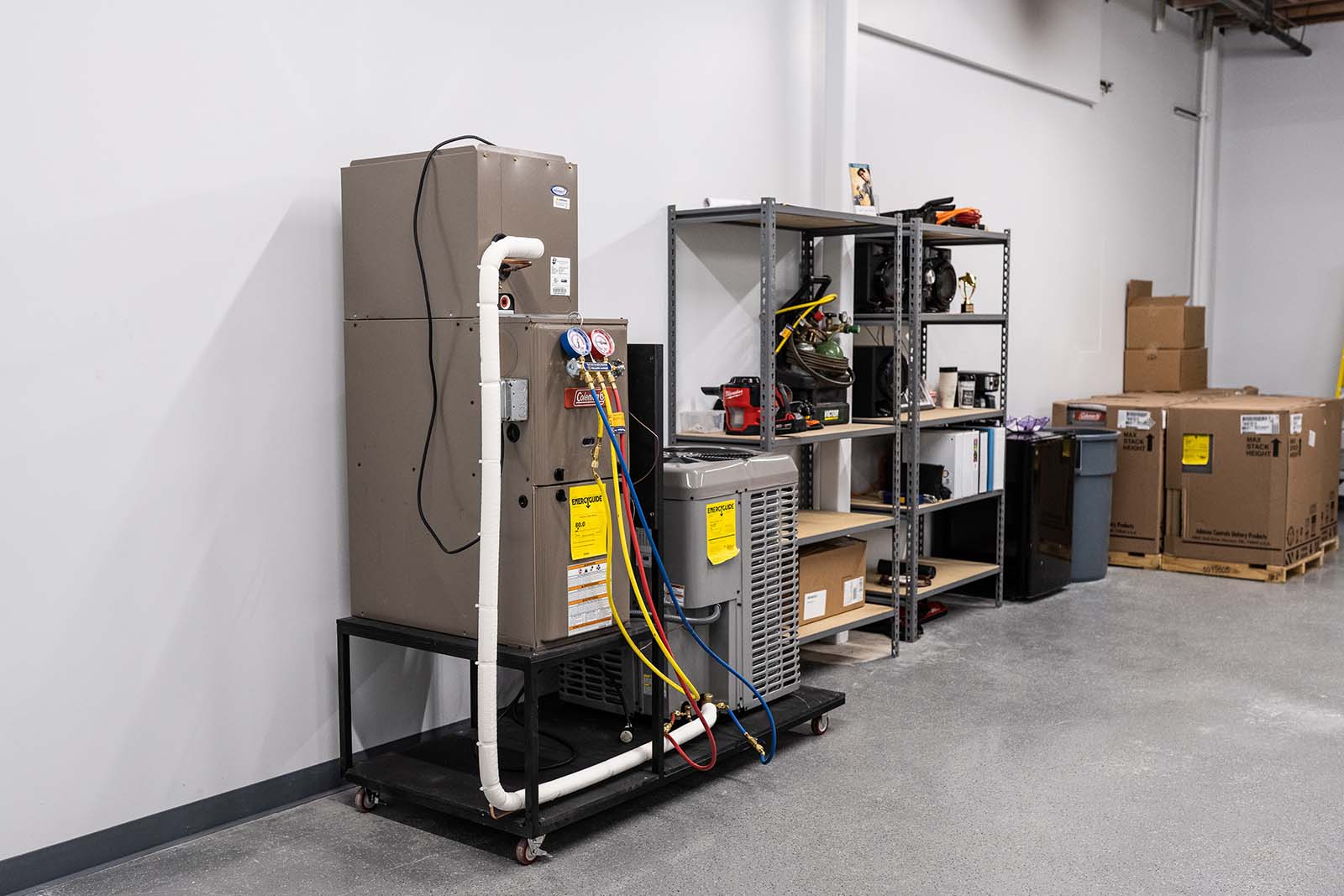Residential Heating and Air Conditioning Solutions for Year-Round Convenience
Residential Heating and Air Conditioning Solutions for Year-Round Convenience
Blog Article
An Extensive Consider Cooling And Heating Services and Their Impact on Energy Effectiveness and Cost Financial Savings
With technological innovations like clever thermostats and high-efficiency elements, the possibility for enhancing system efficiency is large. As we check out the complex partnership in between A/c systems and operational expenses, including the change towards eco friendly choices, the question occurs: how can these techniques be properly implemented to maximize both ecological and financial benefits?

Relevance of A/c Equipments
heating and cooling systems are a vital component of modern structures, playing an important function in maintaining comfortable and healthy and balanced interior settings. These systems, including air, home heating, and ventilation conditioning, are necessary for regulating temperature, moisture, and air high quality, thus making sure the well-being of occupants. Efficient a/c systems contribute significantly to creating an ideal indoor environment, which is critical for both residential and business spaces.
In business buildings, heating and cooling systems are essential to offering a effective and risk-free atmosphere. By managing indoor climate conditions, these systems aid protect against the development of mold and the spread of airborne impurities, thus guarding the health of consumers and employees. Additionally, in domestic setups, cooling and heating systems boost living conditions by offering regular thermal comfort and improving indoor air quality, which is essential for general health and wellness.
Moreover, the layout and maintenance of cooling and heating systems have a straight impact on energy intake and functional prices. Correctly designed and maintained systems can significantly decrease energy usage, leading to minimized energy bills and a smaller sized carbon impact. The effectiveness of these systems thus plays an important duty in promoting sustainability and energy preservation within structures, highlighting their value in the contemporary building landscape.
Advances in A/c Technology
Advancement in a/c technology is transforming the way structures take care of indoor environments, ushering in a new age of effectiveness and control. Current improvements have actually concentrated on optimizing power intake while improving user comfort. One significant growth is the combination of clever thermostats, which use artificial intelligence to learn tenancy patterns and adjust temperature levels as necessary, decreasing unnecessary energy usage.
Variable Refrigerant Circulation (VRF) systems stand for one more significant leap onward. These systems enable accurate temperature control in different zones of a building, boosting comfort and decreasing power waste. VRF modern technology is especially valuable for huge industrial spaces, using adaptability and scalability.
In addition, the introduction of Web of Things (IoT) tools has actually transformed HVAC systems into interconnected networks with the ability of real-time data collection and analysis. This connection allows predictive upkeep, ensuring systems operate at peak effectiveness and decreasing unexpected downtime.
Moreover, innovations in materials and style, such as making use of high-efficiency coils and compressors, have enhanced general system efficiency - Heating Contractor. The adoption of eco-friendly refrigerants additionally highlights the industry's dedication to sustainability
These technological developments are crucial in decreasing operational prices and ecological impact, setting new standards for constructing environment management.
Cooling And Heating Maintenance and Efficiency
Making sure ideal efficiency of HVAC systems expands beyond technical advancements; it also rests on effective maintenance techniques. Routine maintenance is vital for maintaining efficiency, minimizing energy usage, and extending the lifetime of cooling and heating systems. The primary objective is to make certain that all components function at their peak capacity, thereby decreasing energy wastefulness and maintaining constant indoor comfort degrees.
Routine maintenance tasks, such as cleansing or changing air filters, inspecting refrigerant degrees, and checking ductwork for leakages, are important for preventing unneeded pressure on the system. Clogged up or unclean filters can block air flow, causing the system to work more difficult and take in brothers air conditioning even more power. Also, inadequate refrigerant degrees can lower cooling effectiveness, leading to greater operational prices.
Furthermore, routine evaluations by certified specialists can recognize possible issues before they intensify right into expensive repairs or system failings. These assessments typically consist of inspecting electrical connections, calibrating thermostats, and making certain the overall integrity of the HVAC system. By addressing small issues early, organizations and home owners can avoid unforeseen breakdowns and improve power performance.
Economical A/c Solutions
For those aiming to get the most out of their ventilation, heating, and air conditioning systems without damaging the financial institution, exploring affordable HVAC solutions can make a substantial difference. One immediate step is to invest in programmable thermostats, which enable individuals to establish specific temperature levels for various times of the day, optimizing power use and reducing unnecessary usage. By automating temperature modifications, house owners can attain significant savings on energy costs.
Routine upkeep is one more critical component of economical heating and cooling monitoring. Making certain that filters are cleansed or changed routinely, ductwork is sealed, and units are serviced by specialists can avoid costly repair work and boost system longevity. Preventive upkeep not only preserves system effectiveness however also aids in avoiding unforeseen break downs that can cause pricey emergency repair work.
In addition, retrofitting existing systems with energy-efficient parts, such as variable speed electric motors or high-efficiency compressors, can be a prudent investment. These upgrades boost functional efficiency, lower energy usage, and can often be carried out at a portion of the price of a complete system substitute.
Environmental Influence Reduction
Minimizing the ecological impact of heating and cooling systems is important in today's quest of sustainable living. Cooling and heating systems are considerable contributors to power intake, making up almost 40% of power usage in industrial buildings. This power need frequently relies upon nonrenewable fuel sources, resulting in greenhouse gas discharges and ecological destruction. Transitioning to much more reliable systems, such as those using sustainable power sources, can substantially mitigate these effects.
Technical improvements in cooling and heating design and operation, including the assimilation of wise thermostats and energy-efficient warm pumps, are helpful resources essential in lowering carbon impacts. These innovations allow for maximized power usage, reducing wastefulness and enhancing total system performance. Additionally, embracing regular maintenance methods makes certain a/c systems run at peak efficiency, additional curtailing unnecessary energy usage.
Furthermore, making use of ecologically friendly cooling agents is vital, as standard cooling agents, like CFCs and HCFCs, have been eliminated due to official statement their ozone-depleting properties. Modern options, such as hydrofluoroolefins (HFOs), offer lowered environmental dangers, lining up with global ecological protocols. By welcoming these lasting methods, heating and cooling solutions can play a transformative duty in minimizing environmental impacts, promoting energy efficiency, and promoting an extra lasting future.
Final Thought

Additionally, the design and maintenance of A/c systems have a straight effect on energy consumption and functional expenses. Regular upkeep is essential for sustaining efficiency, minimizing power consumption, and extending the life period of HVAC systems. A/c systems are substantial contributors to power intake, accounting for virtually 40% of energy use in industrial structures. Furthermore, adopting regular maintenance techniques makes sure Cooling and heating systems operate at peak effectiveness, more reducing unnecessary energy consumption.
The transition to environmentally friendly A/c systems better advertises and lowers operational expenses sustainability. (Heating Contractor)
Report this page